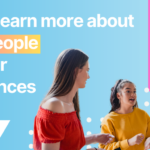In February, Edge Foundation released Phase 2 of their Joint Dialogue research project The perspectives of learners – How are schools developing employability skills?
This research project started as a collaborative project between Education and Employers (lead partner), the Edge Foundation and the National Education Union in 2017. It was driven in response to an issue frequently raised by employers on the range of ‘employability skills’ school leavers need above and beyond formal qualifications.
The aim of the Joint Dialogue project therefore, was to identify which skills employers are looking for in young people, and to consider what skills are being developed in different school settings, and how this might translate or transfer into a workplace setting.
The project consists of two phases; Phase 1 focuses on the perspectives of the employers and teachers and Phase 2 focuses on the perspectives of the learners.
Phase 2 – Perspectives of Learners
The second phase of the project, which this report details, sought to understand learners’ perceptions and experiences of developing employability skills while at school or sixth form college, as well as identifying which skills they consider vital to their future.
Research Methods
- Survey responses from 67 learners (between the ages of 14-18) in Years 10 –Year 13.
- Focus group interviews with 21 learners in attendance at a school or sixth form college in England.
- Focus group interviews with learners across two schools for learners with SEND.
Key Insights
- The most frequently noted skills mainstream learners felt they were developing in school were communication skills, numeracy and problem solving. Overall, amongst learners, communication skills were seen as the most transferable and necessary skill needed for careers and working life.
- The most frequently noted skills mainstream learners felt they were not developing in school were digital skills and being informed, followed by drive, creativity and reflection.
- Students felt they developed the most employability skills through interacting with their peers, such as communication skills, teamwork and confidence.
- Extra-curricular activities were acknowledged by most learners as means to particularly develop team working, communication skills and resilience. However, there is a disconnect between learners engaging with extra-curricular activities in the pre- and post-16 phases of education.
- Learners, in general, were confident using the ‘skills development’ language, and were able to identify – for them – important employability skills.
- Learners, in general, felt it was difficult to articulate real examples of their skills development.












